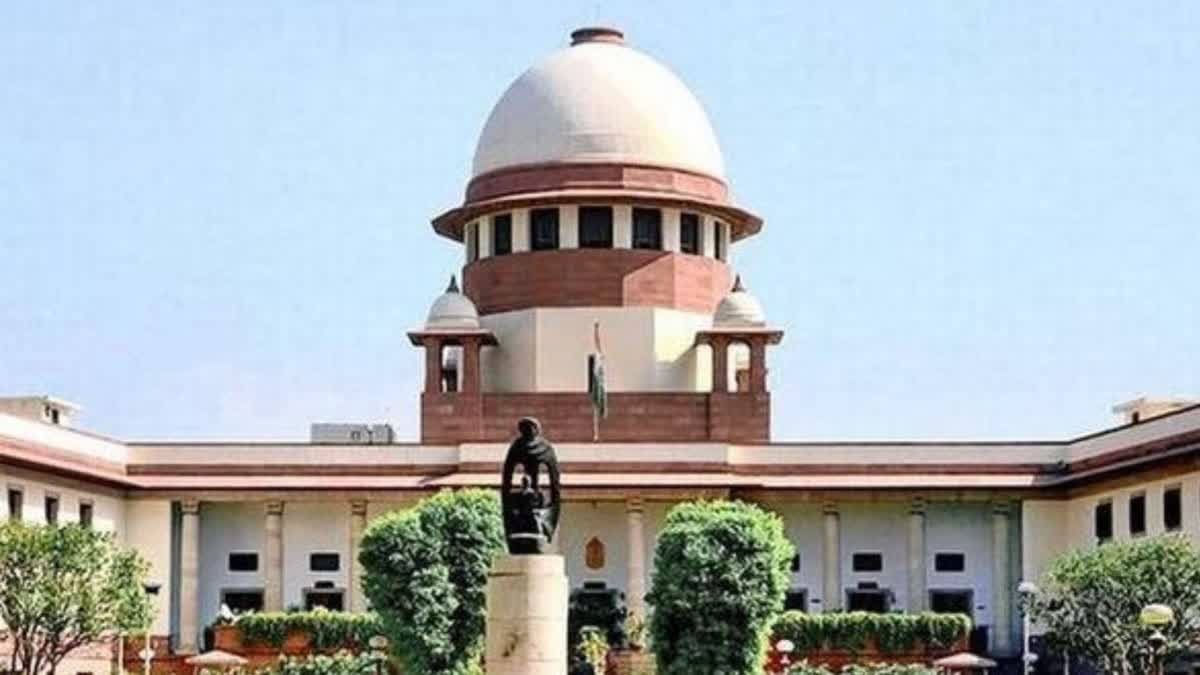New Delhi: The Supreme Court on Monday deplored criminalisation politics, saying how a person could return to Parliament after being convicted in a criminal case.
The matter came up before a bench comprising Justices Dipankar Datta and Manmohan. The top court was hearing a PIL filed by advocate Ashwini Upadhyay for a life ban on convicted politicians aside from the expeditious disposal of criminal cases against MPs and MLAs in the country.
The top court sought a response from the Centre and the Election Commission of India (ECI) within three weeks on the challenge to the constitutional validity of Sections 8 and 9 of the Representation of People Act. Emphasising on sections 8 and 9 of the Representation of People Act, the bench said a government employee, who is found guilty of corruption or disloyalty to the state is not considered suitable in service even as a person but can be a minister.
During the hearing, the bench observed, "Once a politician is convicted, and the conviction is upheld, how can people come back to Parliament and legislature? That they have to answer”. The top court observed that criminalisation of politics is a very major issue. "There is also an apparent conflict of interest. They would be vetting the laws," added the bench, while asking the Attorney General of India R Venkataramani to assist it in adjudication of the issue.
The bench said the ECI must have applied its mind and also have found a better solution than what has been canvassed before the court. Senior advocate Vijay Hansaria, amicus curiae in the matter, contended that despite orders by the apex court from time to time and monitoring by the high court, a large number of cases were pending against lawmakers.
"It's a matter of shame that after all this, 42 per cent of sitting Lok Sabha members have pending criminal cases. For 30 years, cases are pending," submitted Hansaria. Senior advocate Vikas Singh, representing Upadhyay, submitted that law-makers never intended that a person convicted of heinous crimes such as rape or murder, and who was released after a short sentence of two to three years, to be elected either as an MP or MLA.
The bench was informed that in 2017, the apex court had passed directions for setting up 12 special courts in 10 different states and a slew of directions were passed for monitoring of early disposal of pending criminal cases against MPs and MLAs. The bench said since the matter involved constitutional validity of Sections 8 and 9 of the Representation of People's Act, 1951, the Attorney General should address it.
The bench said since a three-judge had passed the judgment on expeditious disposal of criminal cases against lawmakers, it would be inappropriate for a two-judge to reopen the case. The bench directed that the issue be placed before Chief Justice Sanjiv Khanna for consideration by a larger bench. The apex court has fixed the matter for further consideration on March 4.



